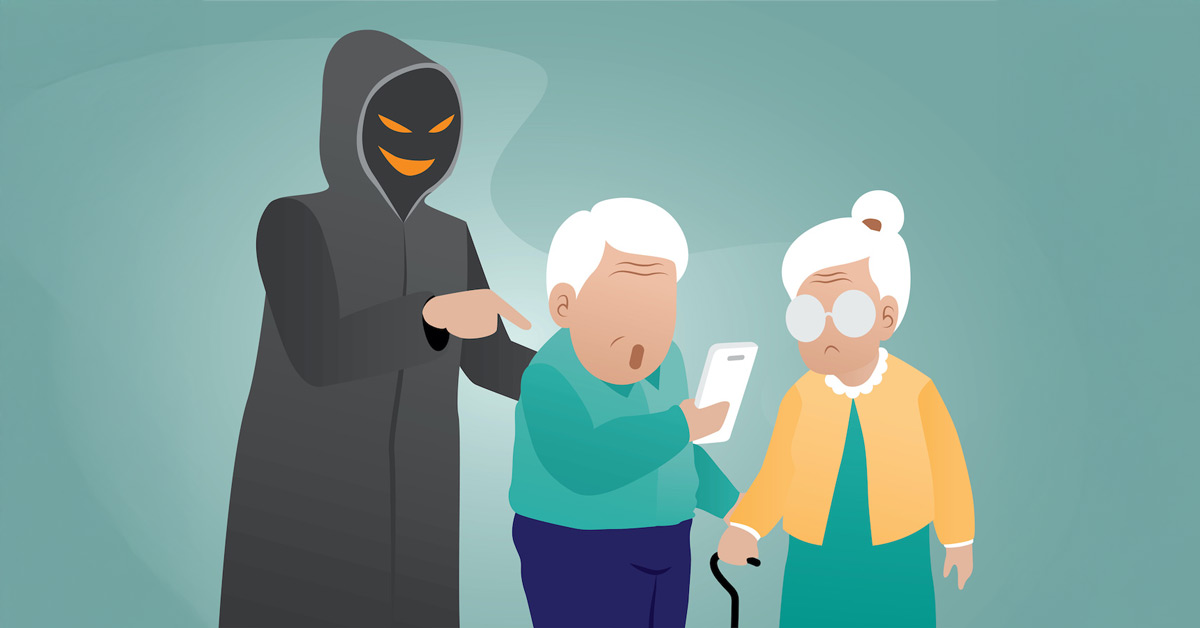Elder Scams: How to Protect Our Seniors from Becoming Victims

It’s heartbreaking but true — scams targeting older adults are on the rise, and the people we love most are often the ones at risk. Every year, thousands of seniors lose billions of dollars to criminals who prey on their trust, kindness, and sometimes their unfamiliarity with new technology. These scams don’t just cost money — they can leave lasting emotional scars and feelings of shame or isolation.
But the good news? Awareness and early action can make a huge difference.
Common Scams Targeting Seniors
- “Grandparent” Scams
Someone calls pretending to be a grandchild in trouble — maybe arrested, stranded, or in an accident. They plead for money to be sent immediately, often telling the senior not to “tell anyone.” - Medicare and Health Insurance Scams
Fraudsters pose as Medicare representatives asking for personal information or offering fake health services in exchange for payment or Social Security details. - Tech Support Scams
Scammers pretend to be from Microsoft, Apple, or another tech company, claiming your computer has a virus. They ask for remote access or payment to “fix” it — and then steal sensitive data. - Romance Scams
Through dating sites or social media, scammers build emotional relationships before inventing emergencies that require money. - Prize and Lottery Scams
“You’ve won a prize!” they say — but to claim it, you need to pay a small fee or share your bank details. Spoiler: there’s no prize.
Why Seniors Are Often Targeted
- Many older adults are polite and trusting, which scammers exploit.
- Cognitive decline or loneliness can make them more vulnerable.
- They often have access to savings or retirement funds.
- Scammers use fear, urgency, or love to manipulate their victims.
How to Help Protect Seniors
- Talk About It Early and Often
Have open, judgment-free conversations about scams. Let your loved one know that anyone can be tricked — and that it’s okay to ask for help or a second opinion before sending money or giving out information. - Encourage “Pause and Verify”
Teach the habit of pausing before reacting. If a caller claims to be from the bank, IRS, or family — hang up and call back using a trusted number. - Set Up Safeguards
- Register their phone on the Do Not Call list.
- Enable two-factor authentication on accounts.
- Monitor unusual bank activity.
- Consider call-blocking apps or devices for landlines.
- Get the Community Involved
Senior centers, libraries, and home care providers can host scam awareness workshops. A simple conversation could save someone from losing thousands. - Know Where to Report Scams
- FTC (Federal Trade Commission):reportfraud.ftc.gov
- AARP Fraud Watch Network: 1-877-908-3360
- Local law enforcement for immediate threats or thefts.
Final Thought
The best protection is connection. Scammers thrive on isolation, fear, and confusion — but they lose power when seniors feel supported, informed, and connected to their families and communities.
If you notice an older adult withdrawing, getting secretive about money, or receiving lots of suspicious phone calls or mail, check in. A little conversation today could prevent a lot of heartache tomorrow.
